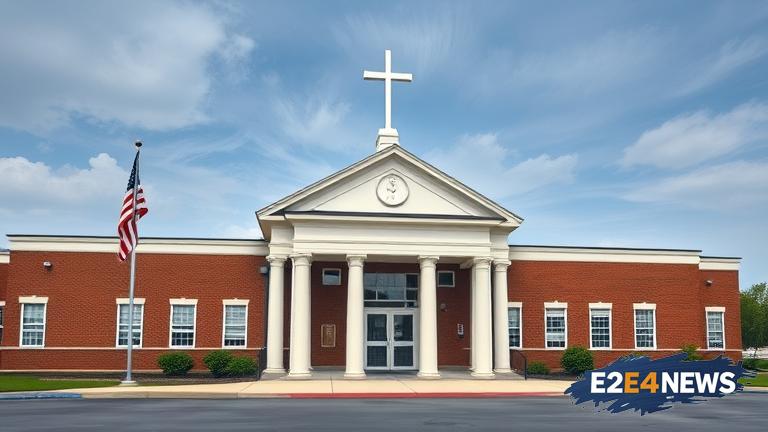A lawsuit filed against a Catholic charter school in Oklahoma has been dismissed in the wake of a recent Supreme Court ruling. The lawsuit, which was filed by a former teacher, alleged that the school had discriminated against her on the basis of her sexual orientation. However, the Supreme Court’s ruling in a similar case has led to the dismissal of the lawsuit. The Supreme Court’s decision, which was handed down earlier this year, held that religious schools have the right to hire and fire employees based on their religious beliefs. The ruling has been seen as a major victory for religious schools and organizations, which have long argued that they should be exempt from certain anti-discrimination laws. The lawsuit against the Oklahoma Catholic charter school was one of several similar cases that have been filed in recent years. The former teacher, who is a lesbian, alleged that she was fired from her job at the school after she got married to her partner. She claimed that the school’s decision to fire her was motivated by her sexual orientation, and that it was therefore discriminatory. However, the school argued that it had the right to fire her based on its religious beliefs. The school’s lawyers argued that the school’s Catholic teachings prohibit same-sex marriage, and that the teacher’s decision to get married was therefore in conflict with the school’s values. The court’s decision to dismiss the lawsuit is likely to be seen as a significant setback for LGBTQ+ rights advocates, who have argued that religious schools should not be exempt from anti-discrimination laws. The ruling is also likely to have implications for other similar cases that are currently pending in courts around the country. The Oklahoma Catholic charter school has released a statement saying that it is pleased with the court’s decision, and that it will continue to operate in accordance with its Catholic values. The school’s statement also emphasized its commitment to providing a high-quality education to all of its students, regardless of their background or identity. The former teacher’s lawyers have said that they are disappointed with the court’s decision, and that they are considering appealing the ruling. The case has sparked a heated debate about the balance between religious freedom and LGBTQ+ rights, with some arguing that religious schools should be allowed to operate in accordance with their beliefs, while others argue that this exemption can be used to discriminate against certain groups. The Supreme Court’s ruling has been seen as a major shift in the balance between these two competing interests, and it is likely to have significant implications for religious schools and organizations in the years to come. The ruling has also been criticized by some who argue that it will lead to further discrimination against LGBTQ+ individuals, and that it undermines the progress that has been made in recent years towards greater equality and acceptance. Despite the controversy surrounding the ruling, the Oklahoma Catholic charter school has said that it will continue to operate in accordance with its values, and that it will work to provide a welcoming and inclusive environment for all of its students. The school’s statement also emphasized its commitment to providing a high-quality education, and to helping its students develop into compassionate and thoughtful individuals. The case is a reminder of the ongoing debate about the role of religion in public life, and the challenges of balancing competing interests and values in a diverse and pluralistic society.
